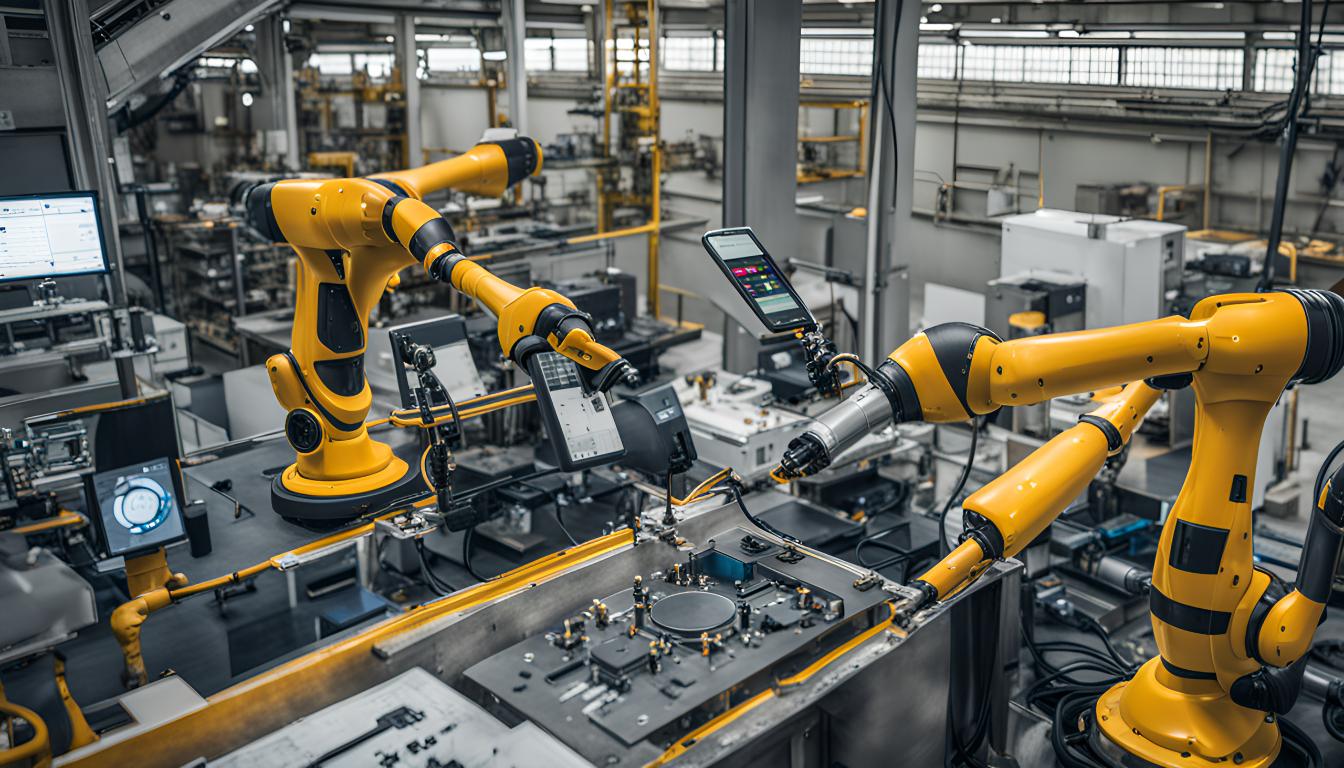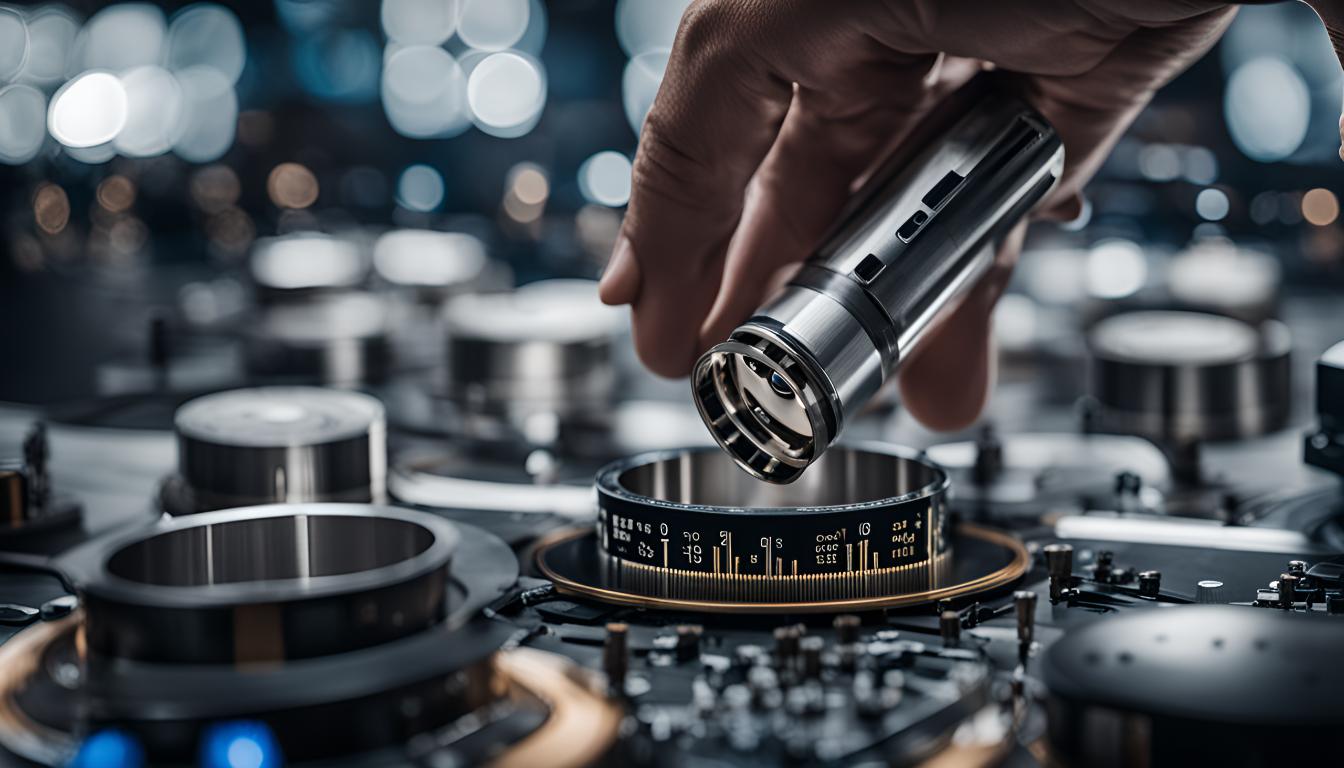29/04/2025
Industrial Quality Control Transformed by Artificial Intelligence
In today’s competitive business world, maximizing quality control processes is one of the keys to business success. Industrial sectors are constantly searching for new technologies to improve productivity and quality standards. In this context, AI-supported image processing technology is revolutionizing industrial quality control processes. In this article, we will examine in detail how AI-supported image processing has transformed the industry, the working principles of this technology, and the advantages it provides. In addition, we will examine how this innovative approach can add value to businesses by showing examples of how AI is applied in quality control on a sectoral basis.

Applications of Artificial Intelligence in Industry
The applications of artificial intelligence in industry have revolutionized processes, particularly in quality control. Traditionally time-consuming and error-prone procedures have become significantly faster and more accurate thanks to AI-powered systems. This integration ensures flawless efficiency on production lines, enhancing companies' competitiveness while also reducing operational costs.
With the integration of AI technologies, image processing solutions have become more robust, making complex visual analyses easier to perform. These systems guarantee product quality by using algorithms to detect and classify defects during various stages of production. Furthermore, due to their continuous learning capabilities, AI models become increasingly precise and effective over time.
Industrial image processing solutions significantly enhance quality control mechanisms, especially on high-speed production lines. Data gathered through cameras and sensors is instantly processed by AI, enabling real-time detection of production defects. This prevents faulty products from reaching the market, thereby increasing customer satisfaction and brand reliability.
The use of AI in production line efficiency and quality control processes has become indispensable for industrial companies. With this technology, error rates are reduced, production speeds are increased, and as a result, companies save costs and gain stronger positions in the market.
What is AI-Powered Image Processing and How Does It Work?
AI-powered image processing refers to advanced technology systems that enable machines to analyze visual data with little to no human intervention. Unlike traditional image processing techniques, these systems leverage AI and machine learning algorithms to detect and interpret complex patterns and details in images. These methods are especially critical in quality control processes for detecting faults, classifying defects, and improving overall production quality.
The working principle of these systems begins with a training dataset. Machines are trained on various images to understand what constitutes a defect and what deviates from normal conditions. After the training phase, the systems are deployed to improve real-time production efficiency and minimize errors. The images continuously captured via cameras and sensors are analyzed by AI, allowing instant detection of any deviations or defects.
AI-powered image processing technology features high-speed capturing and real-time processing capabilities. These traits enable highly effective image processing without interrupting production line activities, ensuring maximum quality control. Additionally, with adaptability and learning capacity, these systems support ongoing improvement and optimization.
Advantages of Using AI in Quality Control
Integrating AI technologies into quality control processes significantly enhances efficiency and accuracy standards across industries. AI-powered image processing solutions, in particular, enable faster and more accurate defect detection on production lines, directly contributing to improved product quality.
Another advantage is AI’s continuous learning ability. These systems become more effective in analyzing and preventing errors over time, improving their ability to detect even the most subtle flaws that human inspectors might miss.
In addition, AI-based systems can operate continuously at high speeds. This is a major benefit for companies with high production volumes, as quality control can be carried out uninterrupted while the production line remains in motion. This continuity helps maximize production efficiency.
AI helps reduce the number of defective products, resulting in cost savings. Although the initial investment may be high, the long-term gains in efficiency and reduced production of second-grade items quickly offset the cost. This can provide companies with a competitive edge in the marketplace.
AI Applications in Quality Control by Industry
Today, artificial intelligence plays a major role in transforming quality control processes across almost every industry. Particularly in the automotive, electronics, and pharmaceutical sectors, AI-powered image processing solutions have led to significant advancements in improving product quality and reducing manufacturing errors.
In the automotive industry, AI has been integrated into advanced image analysis systems used to detect part and assembly defects. These systems thoroughly inspect each component to ensure vehicles are safer and more durable. In the electronics industry, systems that check whether miniature components on circuit boards are properly placed operate more quickly and accurately thanks to AI.
In the pharmaceutical industry, where quality control is crucial for human health, AI-powered image processing is effectively used to minimize production error risks. AI systems that inspect whether tablets are correctly dosed and defect-free have significantly increased efficiency in this sector.
Although the applications and benefits of AI vary across industries, it generally enhances quality and improves production line efficiency in the domains it is applied. As a result, businesses reduce costs and enhance their reputation, reaching a broader customer base.
Frequently Asked Questions
What is AI-powered image processing?
AI-powered image processing is the use of artificial
intelligence technologies by computer systems to analyze and interpret images. This process is mainly used in
industrial settings to enhance automation and efficiency.
What role does AI-powered image processing play in quality control?
In quality control,
AI-powered image processing rapidly and accurately analyzes products to detect surface defects, dimensional
anomalies, and other quality issues. This reduces production errors and enhances product quality.
What are the advantages of this technology in industry?
This technology lowers error rates,
increases processing speed, reduces costs, and boosts workforce efficiency—contributing to the overall optimization
of production processes.
Which other areas apply AI-powered image processing?
This technology is also used in medical
diagnostics, security systems, traffic monitoring, agricultural technology, and the retail sector.
Can you provide an example of AI-powered image processing in quality control?
In the automotive
industry, AI-powered camera systems can detect and classify scratches or other defects on parts within seconds
during quality control inspections.
What does a company need to adopt AI-powered image processing technology?
To implement this
technology, a company needs relevant AI software, compatible hardware infrastructure, and trained personnel capable
of effectively operating the system.
What is the future and potential of AI-powered image processing?
The future of AI-powered image
processing looks promising. With ongoing advancements in information technology, this technology is expected to
become even more widely used—not only in industrial applications but also in daily life.

